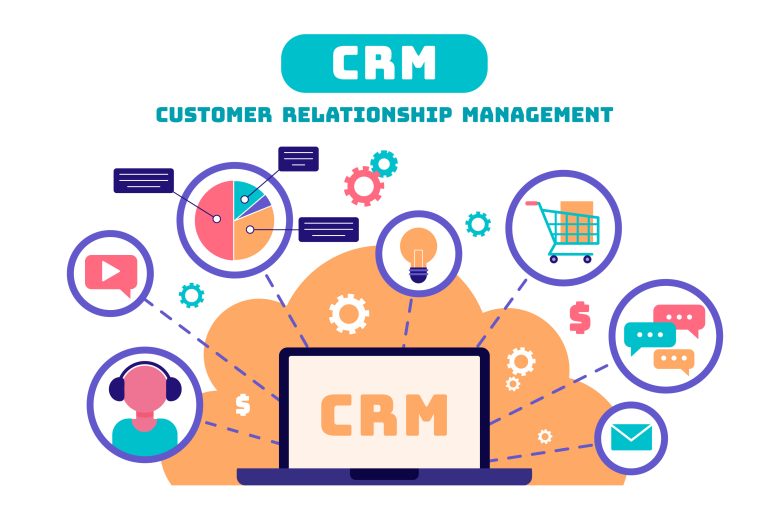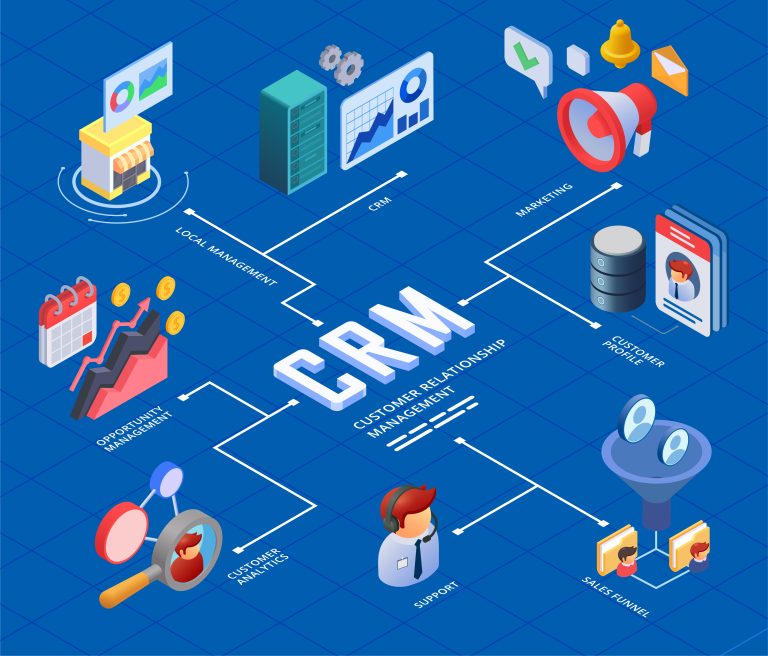Introduction
In today’s fast-paced and customer-centric business landscape, maintaining meaningful and lasting relationships with customers is vital for sustained success. Customer Relationship Management (CRM) is a comprehensive strategy that empowers businesses to do just that. It goes beyond mere customer interactions, focusing on understanding customer needs, delivering personalized experiences, and building long-term loyalty. In this blog, we will take an in-depth look at CRM, exploring its core principles, types, implementation process, challenges, and the future of CRM in shaping the business landscape.
Understanding CRM
At its core, CRM is a business philosophy centered around customers. It involves not only managing customer interactions but also analyzing data, understanding behavior, and anticipating needs to deliver a seamless customer experience. CRM strives to build strong and lasting relationships by treating each customer as an individual, thereby fostering loyalty and advocacy.
Types of CRM
CRM comes in different forms, catering to the diverse needs of businesses. The major types of CRM systems include:
- Operational CRM:
- This type of CRM focuses on automating and streamlining day-to-day business processes, such as sales, marketing, and customer support. It facilitates efficient lead management, sales tracking, and issue resolution, providing a 360-degree view of customers’ interactions.
- Analytical CRM:
- Analytical CRM delves into customer data to gain valuable insights into behavior, preferences, and trends. By analyzing this data, businesses can identify patterns, predict customer needs, and fine-tune their marketing strategies for better outcomes.
- Collaborative CRM:
- This type of CRM emphasizes interdepartmental collaboration by sharing customer information across teams. It ensures that everyone in the organization has access to up-to-date customer data, enabling seamless communication and a holistic approach to customer management.
- Strategic CRM:
- Strategic CRM involves formulating long-term customer-centric strategies, taking into account customer lifetime value and retention. It focuses on maximizing customer loyalty and brand advocacy through targeted marketing and personalized engagement.
Implementing CRM
Implementing a CRM system requires careful planning and execution. Here are the key steps in the CRM implementation process:
- Define Objectives:
- Clearly outline the objectives and goals you want to achieve with CRM. Whether it’s improving customer satisfaction, increasing sales, or enhancing marketing effectiveness, defining objectives helps shape the CRM strategy.
- Choose the Right CRM Solution:
- Evaluate various CRM software providers and choose the one that aligns with your business requirements and budget. Consider factors like scalability, ease of integration, and customer support.
- Data Migration and Integration:
- Migrating existing customer data into the new CRM system is a critical step. Ensure seamless integration with other tools and databases to maintain data consistency and accuracy.
- Customize and Train:
- Tailor the CRM solution to match your business processes and train employees on its functionalities. Proper training ensures that your team can effectively utilize the CRM system and harness its full potential.
- Monitor and Refine:
- After implementation, closely monitor CRM performance and gather feedback from users. Regularly refine and optimize the CRM system to adapt to changing business needs and ensure maximum efficiency.
Challenges of CRM Implementation
While CRM offers numerous benefits, it is not without its challenges. Some common challenges faced during CRM implementation include:
- Data Quality and Integrity:
- Inaccurate or incomplete data can hinder CRM effectiveness. Maintaining data quality and integrity requires continuous efforts and data governance.
- User Adoption:
- Resistance to change and lack of user adoption can lead to underutilization of the CRM system. Providing adequate training and highlighting the system’s benefits are essential to overcome this challenge.
- Integration Issues:
- Integrating CRM with existing systems and databases can be complex. Ensuring seamless data flow between systems is critical for the success of CRM implementation.
- Cost and ROI Concerns:
- CRM implementation can be a substantial investment, and measuring its return on investment (ROI) may not be immediate. Businesses must carefully analyze the long-term benefits and weigh them against the costs.
The Future of CRM
As technology continues to evolve, so does CRM. The future of CRM holds exciting possibilities, including:
- Artificial Intelligence (AI) Integration:
- AI will play a crucial role in CRM by automating tasks, predicting customer behavior, and delivering hyper-personalized experiences.
- Omni-channel Experience:
- CRM will enable businesses to provide a seamless customer experience across various channels, including social media, email, chat, and voice.
- Internet of Things (IoT) Integration:
- IoT data will enrich CRM insights, enabling businesses to anticipate customer needs based on real-time data from connected devices.
- Blockchain-powered CRM:
- Blockchain technology can enhance CRM security, data privacy, and trust by providing a decentralized and tamper-proof database.
Conclusion
In conclusion, CRM is a transformative approach that revolves around building strong customer relationships and delivering exceptional experiences. By understanding customer needs, streamlining processes, and leveraging data-driven insights, businesses can enhance customer loyalty, drive growth, and stay competitive in today’s ever-changing business landscape. As technology continues to evolve, the future of CRM holds immense potential, opening doors to more profound customer understanding and engagement. Embracing CRM is not just a business strategy; it is a commitment to putting customers at the heart of your organization’s success.



